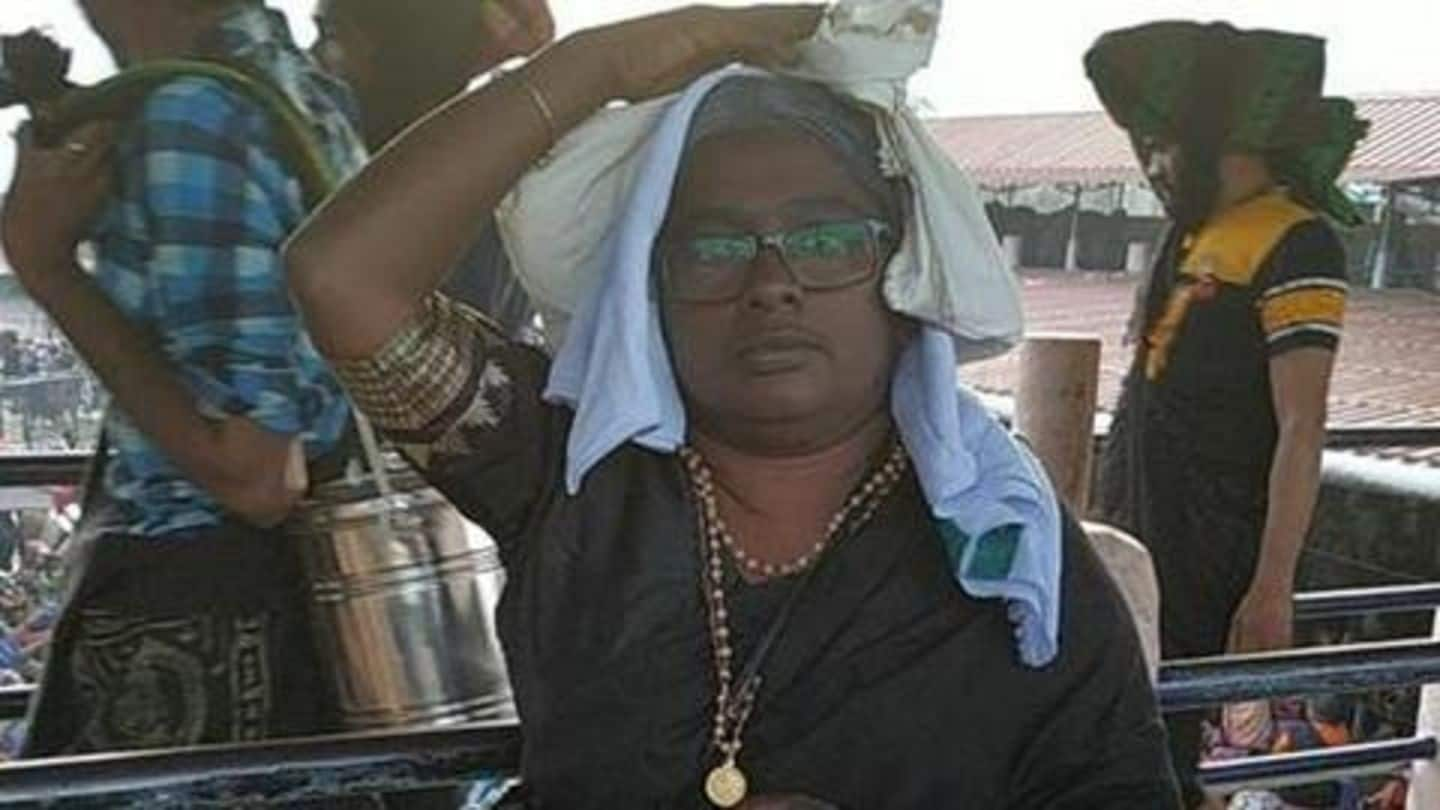
Sabarimala: After dyeing hair grey, 36-year-old enters shrine, offers prayers
What's the story
A 36-year-old woman has claimed she entered the Sabarimala Temple in Kerala and offered prayers to Lord Ayyappa. The state witnessed widespread protests after two women entered the holy shrine. In September last year, Supreme Court lifted a ban that kept women of menstruating age away from the shrine. And now a third woman, identified as Manju, has entered the temple.
The woman
Manju tried entering temple in October but failed
Manju, a Dalit activist, said she entered the temple on January 8. A Facebook group called 'Renaissance Kerala Towards Sabarimala' posted photos and videos to show Manju indeed entered the shrine. She had attempted to reach the temple in October, last year, but on reaching Pamba she was dissuaded by police officials. They advised her against taking the trek in heavy rainfall.
Offering prayers
This time Manju dyed her hair to dodge protesters
However, this time around Manju didn't seek police help. She colored her hair grey to fool protesters. "I had a fruitful darshan of the presiding deity. I came as an ordinary pilgrim. But, of course, to dodge protestors, I dyed my hair grey and pretended to be an aged woman. Nobody noticed me and I will continue my visit in future also," she said.
Details
Manju also climbed the 18 holy steps
Notably, Manju is an active member of a left-leaning organization, Mahila Dalit Federation. Some of her friends also claimed she entered the temple but didn't disclose her location. Not only did Manju enter the shrine, but also climbed the 18 steps considered to be the most sacrosanct. Bindu and Kannaka Durga, who scripted history last week, apparently didn't scale the holy steps.
Looking back
The first women to enter the temple are in hiding
After entering the temple, Durga told media her family doesn't approve of her decision but she was glad she made it easier for other women. "I believe it is our constitutional right to enter Sabarimala and we exercised our right as women," Bindu had said. The two women are still in hiding and have been given police protection.